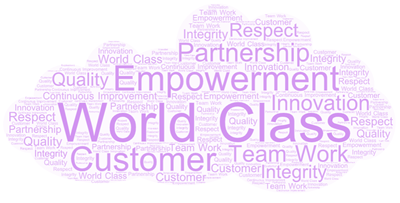Russell’s Operational Excellence Manager, Kevin Jamieson, discusses the importance of operational excellence across our business.
“Operational Excellence is about challenging the current ways of doing things to find better solutions. It is achieved when the members of an organisation become actively involved in delivering improvements to their workplace.
It’s not just about reducing costs or increasing productivity; it is about creating a culture where colleagues are developed through the introduction of new ideas (industry best practices). They are given the confidence to challenge every aspect of how they do their jobs and are made to feel valued as their contribution and expertise identifies where improvements are to be made.
How Are We Achieving This?
Workshops have begun where members from all departments are invited to share their views, ideas and agree on ways for improvement. The workshop is the place where everyone can speak openly and are actively encouraged to challenge their current processes. The mantra of the workshops being: To challenge the six most expensive words in business which are, “We’ve always done it that way”.
Using guidance from the experts (the people doing the job), we are creating work instructions which are then used for training and standardising complex tasks, eventually introducing these as standard ways of working. This works alongside using parts of known processes, like Lean Six Sigma and Project Management, to remove unnecessary activities from day-to-day working.
Sharing site goals and targets and using quantitative data to be transparent on performance allows us to identify when we need to use corrective actions to improve and prevent historical issues happening again.
Successful and sustainable Operational Excellence can only occur when the business works together with its people. To this end, my function as the Operational Excellence Manager is to coach, guide and provide the necessary tools so that each colleague can drive improvements within their own area whilst learning new skills along the way.
Through time, new practices will become culture, where questioning old methods: “Why do we to do this?” and with statements like “I have an idea!” will be the catalyst to ongoing improvements and more importantly, ensuring all employees feel valued because they are heavily involved in the process.

